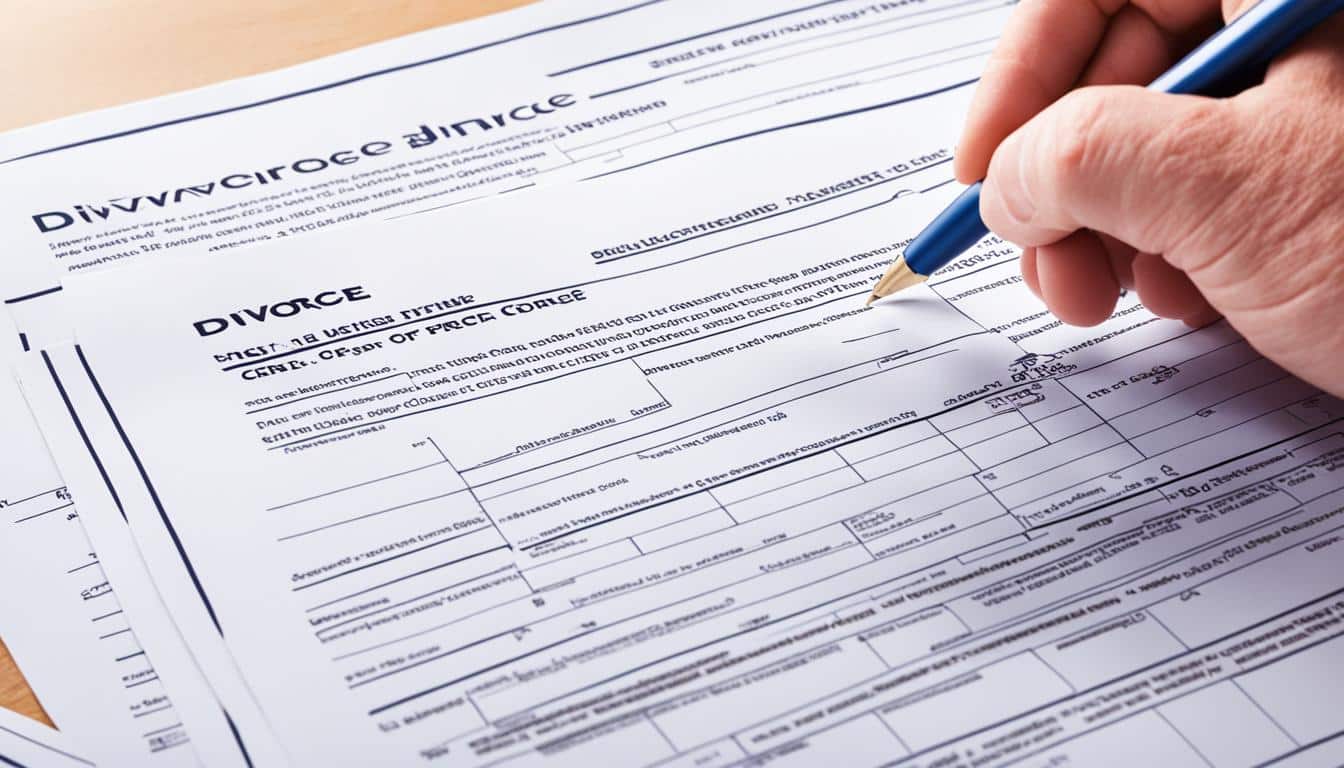Physical Address
304 North Cardinal St.
Dorchester Center, MA 02124
Physical Address
304 North Cardinal St.
Dorchester Center, MA 02124

Are you thinking of filing for divorce in Shawnee County, KS? If yes, you’re not alone, and it’s not as daunting as it sounds. Divorce can be a tough road, but understanding the steps can ease the journey.
In Shawnee County, the process has its specifics, just like every other place. Whether it’s dealing with legal paperwork or understanding local court requirements, knowing where to start can make all the difference.

But don’t worry, we’re here to guide you through the basics, from the initial filing to what to expect in court. Keep reading to learn how to navigate this challenging time with confidence and clarity. Let’s dive into the essentials of filing for divorce in Shawnee County, KS.
To get more info on filing for divorce in Kansas, find a detailed overview in our article, How to File for Divorce in Kansas.
Before filing for divorce in Shawnee County, Kansas, it’s crucial to understand the residency requirements. In order to file for divorce in Shawnee County, at least one spouse must have been a resident of Kansas for a minimum of 60 days. This residency requirement ensures that the case is filed in the appropriate jurisdiction and that Kansas divorce laws apply.
The residency requirements for divorce in Kansas state that at least one spouse must have established residency in the state for a period of 60 days or be stationed at a military installation within Kansas. This means that either you or your spouse must have been living in Kansas for at least 60 days prior to filing for divorce in Shawnee County. It’s important to meet this residency requirement to ensure that your divorce case is valid and falls under Kansas jurisdiction.
Kansas allows for both no-fault and fault-based divorces. Understanding the grounds for divorce is crucial when filing for divorce in Shawnee County.
In a no-fault divorce, the court doesn’t require either spouse to prove that the other’s bad acts were the cause of the divorce. Kansas recognizes two no-fault grounds for divorce:
In a fault-based divorce, one or both spouses must provide evidence that the other spouse’s actions caused the failure of the marriage. Examples of fault-based grounds include:
Understanding the grounds for divorce in Kansas allows you to determine the appropriate legal basis for your divorce case. Whether you choose to assert no-fault or fault-based grounds, consulting with a knowledgeable Shawnee County divorce attorney can provide you with the guidance and support you need throughout the process.
The process of filing for divorce in Shawnee County depends on whether it’s an uncontested or contested divorce. In an uncontested divorce, both spouses agree on all divorce-related matters, such as property division and child custody. To file for an uncontested divorce in Shawnee County, you’ll need to complete specific divorce forms, such as a Civil Information Sheet, Summons, Domestic Relations Affidavit, and Petition for Divorce. In a contested divorce, where spouses disagree on certain issues, one spouse must file a petition for divorce with the court. Additional forms may be required, and the process may involve discovery and trial. Understanding the process for filing both types of divorces is essential when filing for divorce in Shawnee County.
| Uncontested Divorce Process in Shawnee County KS | Contested Divorce Process in Shawnee County KS |
|---|---|
|
|
When filing for divorce in Shawnee County, Kansas, you need to be aware of the filing fees that are required. As of 2023, the statewide filing fee for divorce in Kansas. However, it’s important to note that additional surcharges may be added.
| Description | Base Fee | Surcharge | Total Fee Range |
|---|---|---|---|
| Statutory Base Charge (Stat. § 60-2001 (2023)) | Varies | Most courts add a surcharge | $190 – $200 |
| Total Filing Fee in Third Judicial District (Shawnee County) | $195 | – | $195 |
Understanding the costs of filing for divorce in Shawnee County is crucial when preparing for the divorce process. It’s recommended that you budget accordingly and have a clear understanding of the expected fees before initiating the filing process.

If you are unable to afford the filing fees for divorce in Shawnee County, you may be eligible for a fee waiver. The court determines eligibility based on income and financial circumstances. By applying for a fee waiver, you can potentially have the filing fees for divorce waived. It’s important to understand the process and requirements for obtaining a fee waiver in Shawnee County.
| Eligibility Criteria | Required Documentation |
|---|---|
| You must be a resident of Shawnee County for at least 60 days | Proof of residency (e.g., utility bill or lease agreement) |
| You must meet income guidelines set by the court | Income verification documents (e.g., paycheck stubs or tax returns) |
| You must demonstrate financial hardship | Proof of financial hardship (e.g., bank statements or proof of government assistance) |
To apply for a fee waiver, you will need to complete the necessary forms provided by the court and submit them along with the required documentation. It’s essential to accurately and honestly present your financial situation to increase your chances of qualifying for a fee waiver. The court will review your application and make a decision based on the information provided.
Qualifying for a fee waiver can significantly reduce the financial burden of filing for divorce in Shawnee County. If you believe you meet the eligibility criteria, it’s worth applying for a fee waiver to ease the financial strain during this challenging time.
The court is located at:
200 SE 7th St, Topeka, KS 66603, United States

If you’re considering filing for divorce in Shawnee County, Kansas, without an attorney, it’s crucial to understand the process of self-representation. While having an attorney is recommended, many individuals opt to handle their divorce proceedings on their own, especially in uncontested cases. By familiarizing yourself with the necessary forms and procedures, you can confidently file for divorce without an attorney in Shawnee County.
When embarking on a DIY divorce in Shawnee County, it’s essential to be well-informed and prepared. Start by gathering all the required documents and forms, such as the Civil Information Sheet, Summons, Domestic Relations Affidavit, and Petition for Divorce. These forms can typically be obtained from the Shawnee County District Court website or the court clerk’s office.
Once you have the necessary forms, carefully review the instructions provided. Take your time to understand each section and accurately complete all required information. Any mistakes or omissions could lead to delays or complications in the divorce process.
While representing yourself in divorce proceedings is possible, it’s important to acknowledge the complexities of the legal system and the potential risks of making errors. If your case involves complex financial matters or child custody disputes, it may be wise to consult with an experienced family law attorney to ensure your rights and interests are protected throughout the divorce process.
To see how this process of filing for divorce in Shawnee County compares to that in other [state] counties, check out our articles about how to file for divorce in Sedgwick County and filing for divorce in Johnson County.